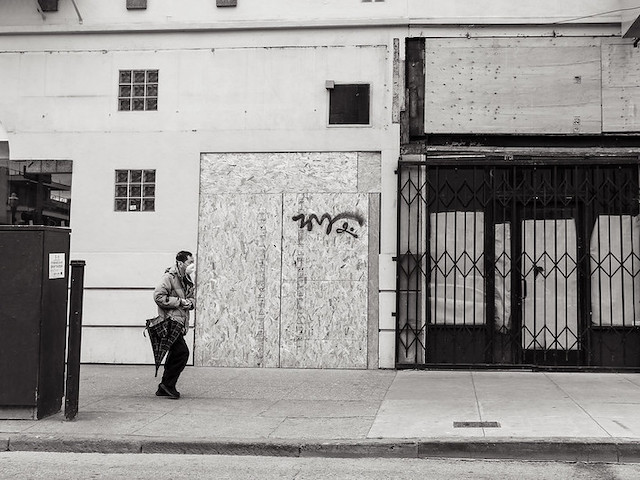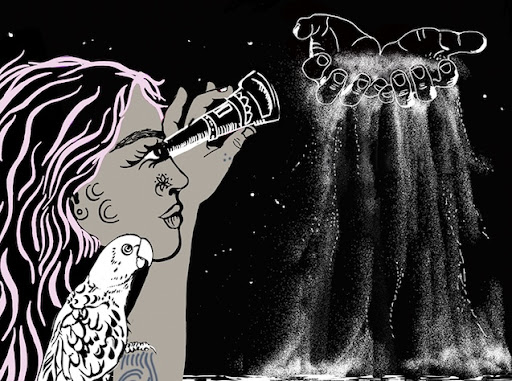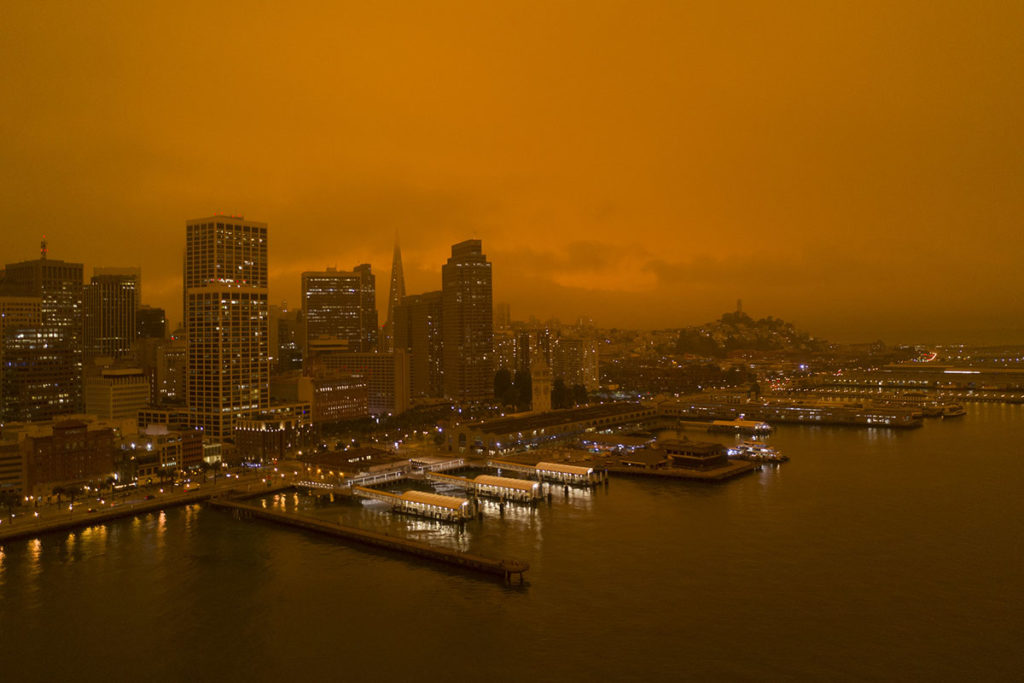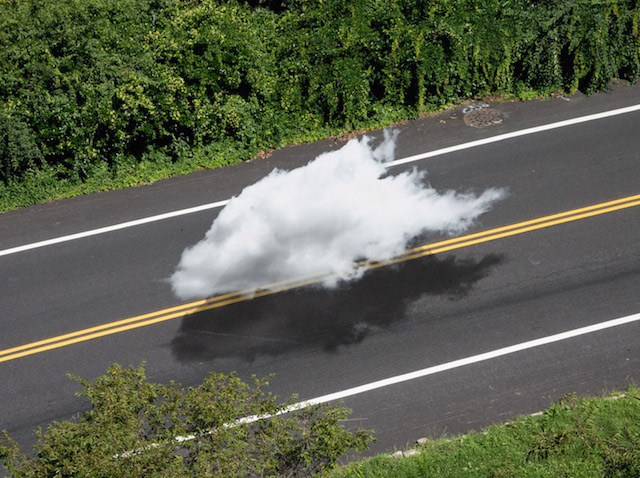These days I’ve grown tired of my heart, how much feeling it has required, and would much prefer to laugh.

December 4, 2020
Xiaoyi says the way to a good life is to give everything. Give where there is need, she says. Never ask for anything back.
She is spooning rice into a plastic bag. She scoops up a fried egg. She slices a block of spam.
Do you like sour mustard? she shouts over the balcony.
The man shouts back:
I’m starving, I’ll eat anything.
Okay—get ready!
She ties the bag with a double knot and drops it over the ledge. Four floors below the man waits, arms outstretched. He has long, ragged hair and cracked and mottled skin, the kind of man who would frighten me if I met him on the street. He plunges his nose into the bag, inhaling deeply. My own lungs stop with shame. I am five. I speak one language. I want badly for adults to like me, for adults to think I’m good. Which is an absolute: not something you try to do but something you have, like a talent, you’re either born with it or not.
A woman shouts from across the alley:
Don’t bother with him, he’s a liar! I just fed him a bowl of mian.
Maybe he’s still hungry, Xiaoyi snaps back.
Then, to the man, You have a good day sir, before shutting the balcony door.
She turns to me:
Mengmeng, a person should not judge another. The feeling heart should be open wide.
She speaks with the gentle drawl I will long associate with wisdom, with compassion, until the years press it into something else. It is a voice dressed in monk’s robes, its bare feet climbing up the long temple steps.
When I see a hungry man I feed him, the voice continues. When I see desperation, I don’t turn away. See, your mother asks me to look after you, to hold you and feed you and wash your clothes, and I do. You may look at my life and think, it’s not much, but I’m not in anyone’s debt.
Debt is a concept Xiaoyi likes very much. She talks about giving and taking, all that she has given and all that others have taken, and how she has refused repayment, stacking debts twofold. How she gave her typist’s wages to jiujiu for college, how she took yima to the Shanghai surgeon, how in childhood she worked the fields so her siblings—my mother—could go to school. I start to think of good as an upside-down bank. The more people owe you, the richer you are.
Just look at you, she says. When you grow up, you’ll take care of your mother and father. You’ll have no obligation to remember me.
I’ll remember you, I protest.
Xiaoyi laughs.
No, shisandian, you’ll forget me, just like you’ve forgotten…
She lists relatives who visited in the year of my birth: the guma who gave me a big hongbao, the jiugong who fed me grapes. Wei Yeye who wasn’t even a blood relation but who got me those nice new clothes. Wei Yeye, who has no grandchildren of his own, got my mother a visa too. In the photograph of my mother’s departure, it is Wei Yeye who holds me as I wail in the windy airport lot.
And does your mother write to thank him, Xiaoyi asks, does she call him on the new year?
She gives an amused smile.
I’m not saying you’ll be heartless, she says. But trust me, you’ll forget.
Xiaoyi lies down for the noon nap. I place my head beside hers, my nose to her nose, my knees to the hollow of her womb. I don’t close my eyes. I catalog the features of her face—waxing moon shape, peach-pink cheeks, three freckles beneath each eye. I concentrate on not forgetting. From the dark rooms of not-forgetting I retrieve guma’s face, and jiugong’s, and Wei Yeye’s. I retrieve an image of my mother, who is flying over an ocean to fetch me. Outside, the hungry man bites into his egg. I retrieve his mouth: brown; his fingernails: gray. He eats quickly, his eyes vacant and hungry—
Vacant and hungry, his eyes track me. He has long, ragged hair and cracked and mottled skin, and the truth is even before I see the knife he frightens me. He is circling the sidewalk in bare, swollen feet, twirling the blade like a wand. Not an uncommon sight in this American city—in this America, where I have lived for twenty-five years, and now in these “unprecedented times.” Even my mother, who has seen everything, is now routinely surprised. These days to cross the street at the sight of another can be interpreted as fear, but also as consideration of health. I do not cross. I step into the bike lane, where no one is coming, and look the man in the eyes. Kindly. “You have a good day, sir,” I say.
Vacant—no. They are red and angry, closing a vice grip on my stare as I hurry past. I quicken my pace. I turn a corner and for shame I run. Through streets newly pitched with tents, past broken needles and shattered glass, past shifting shapes writhing beneath shelters of tarp, I run, past the block where a Porsche is parallel parked behind two Teslas, past dried scabs of excrement, I run. These days the only way I know to soothe myself is to imagine things. Behind the grime and wear, the man I run from is yellow like me. He laughs and pulls out—a fork. A table appears—he sits. Noodles, and a fried egg! He plunges his nose into the bowl, raises his knife and fork laughing. No, it is a prime rib—and I am nearly home. These days I’ve grown tired of my heart, how much feeling it has required, and would much prefer to laugh. But there it is, thumping, thumping.



